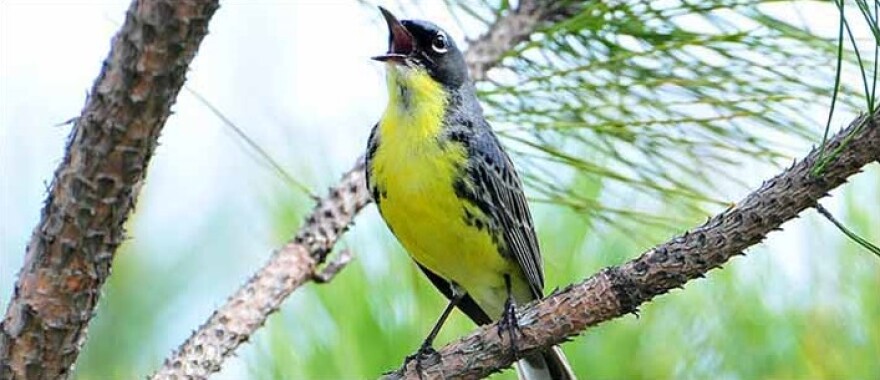Update: U.S. Fish and Wildlife Service is holding a meeting this week on delisting endangered species. Officials only plan to talk about Key deer, although other species are up for consideration. The story has been edited to reflect the updated information.
Federal wildlife officials will discuss the status of the endangered Key deer Thursday. This comes as the Trump administration rolls back protections under the Endangered Species Act.
As part of a three-year plan, U.S. Fish and Wildlife Service is also recommending downgrading species, like the Florida golden aster -- an endangered flower found in Hillsborough, Pinellas and Manatee counties.
The endangered red-cockaded Woodpecker is also on the list.
Click here to view the full list of protected species up for downgrading.
The protection status of this bird has also led to conservation of its habitat: the long leaf pine forest.
"The long leaf pine forest once blanketed most of the southeast and have largely been lost, replaced by agriculture, or industrial forest plantations, or urbanization," said Noah Greenwald, endangered species director for the Center for Biological Diversity.
"Red-cockaded woodpecker is one of many, many species that are imperiled by their loss, and through protections under the Endangered Species Act have been recovering, but aren't quite there yet."
He said the woodpecker may have rebounded enough to go down from "endangered" protected status to just "threatened," but now that the Trump administration has new regulations, weakening what "threatened" means, Greenwald's concerned.
"Previously, threatened species had the same protections as endangered species but with the new regs, threatened species don't automatically get the same protections," said Greenwald.
"And, in particular, they don’t get the same protections against 'take' which has been broadly defined to include killing, harming, harassing, destroying their habitat."
The new regulations could make it easier for developers to build in the habitat of threatened species.
"They allow consideration of economic factors when deciding whether to list a species, which has been specifically prohibited by Congress because the question of whether a species is under extinction is fundamentally a scientific question," said Greenwald. "And allowing consideration of economic factors just introduces politics."
Each species would have to rely on special rules for any additional protections. Greenwald said the Center plans to sue over the new regulations because they "in no way improve protections for species."
The U.S. Fish and Wildlife Service meets at 6 p.m. Thursday at the Marathon Government Center to discuss protections for Key deer.




